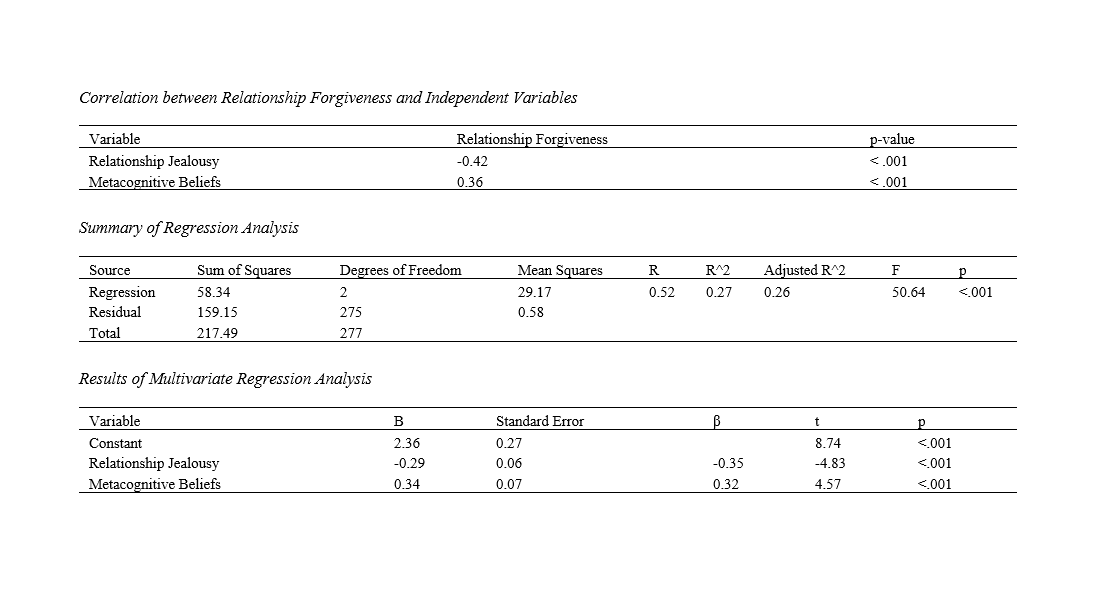Exploring the Dynamics of Relationship Forgiveness: The Roles of Jealousy and Metacognitive Beliefs
Keywords:
Relationship forgiveness, relationship jealousy, metacognitive beliefs, romantic relationships, emotional regulation, cognitive processesAbstract
This study aimed to investigate the roles of relationship jealousy and metacognitive beliefs in predicting relationship forgiveness among individuals in romantic relationships. A cross-sectional design was employed, involving 278 participants recruited through convenience sampling. Participants completed self-report measures including the Relationship Forgiveness Scale, the Multidimensional Jealousy Scale, and the Metacognitions Questionnaire-30. Descriptive statistics were calculated for each variable. Pearson correlation coefficients were used to examine the relationships between the dependent variable (relationship forgiveness) and the independent variables (relationship jealousy and metacognitive beliefs). A linear regression analysis was conducted to determine the predictive power of jealousy and metacognitive beliefs on forgiveness. Descriptive statistics revealed mean scores of 3.52 (SD = 0.84) for relationship forgiveness, 2.78 (SD = 0.93) for relationship jealousy, and 3.14 (SD = 0.76) for metacognitive beliefs. Correlation analysis showed a significant negative relationship between relationship forgiveness and jealousy (r = -0.42, p < .001) and a significant positive relationship between forgiveness and metacognitive beliefs (r = 0.36, p < .001). The regression model indicated that jealousy and metacognitive beliefs significantly predicted relationship forgiveness, accounting for 27% of the variance (F(2, 275) = 50.64, p < .001). The study concludes that higher levels of relationship jealousy are associated with lower levels of forgiveness, while adaptive metacognitive beliefs are linked to greater forgiveness. These findings highlight the importance of addressing both emotional and cognitive factors in promoting forgiveness and enhancing relationship satisfaction. Future research should explore these relationships longitudinally and consider cultural influences. Interventions targeting jealousy reduction and cognitive restructuring may be beneficial in fostering forgiveness in romantic relationships.
Downloads

Downloads
Additional Files
Published
Submitted
Revised
Accepted
Issue
Section
Categories
License
Copyright (c) 2025 Ireneusz Stefaniuk (Corresponding Author)

This work is licensed under a Creative Commons Attribution-NonCommercial 4.0 International License.







